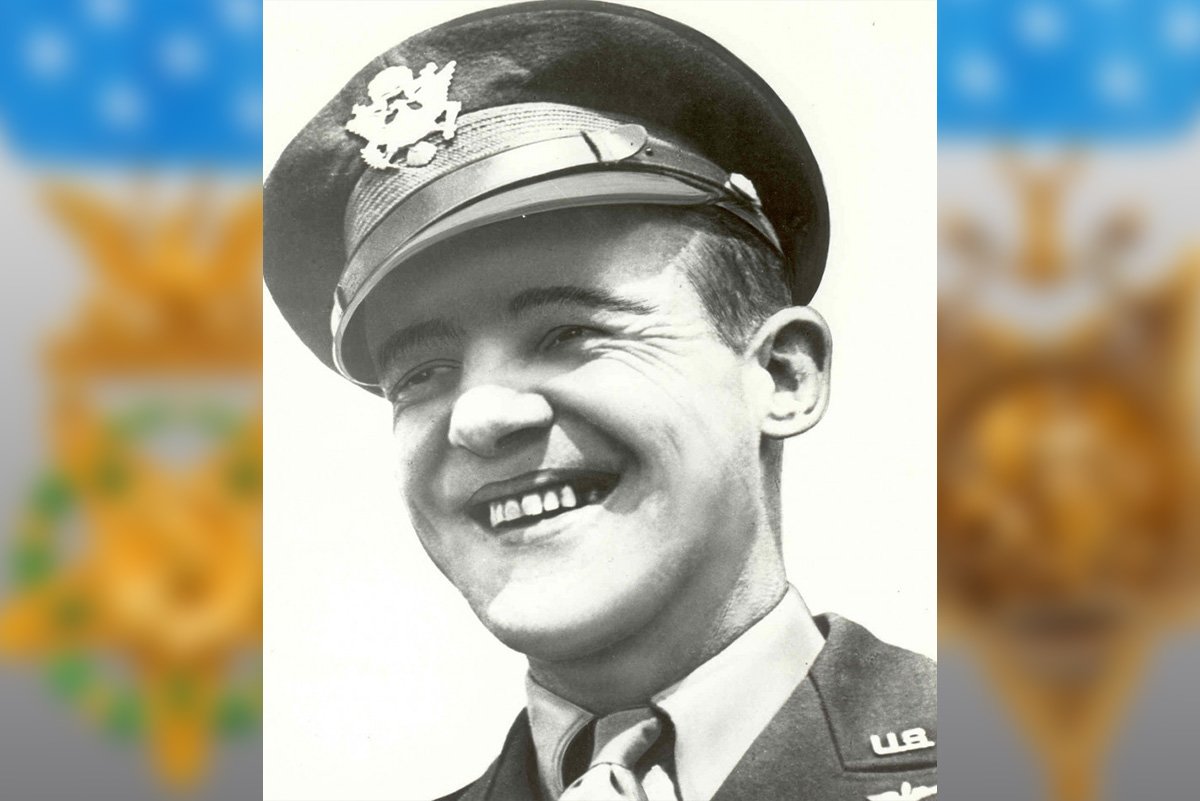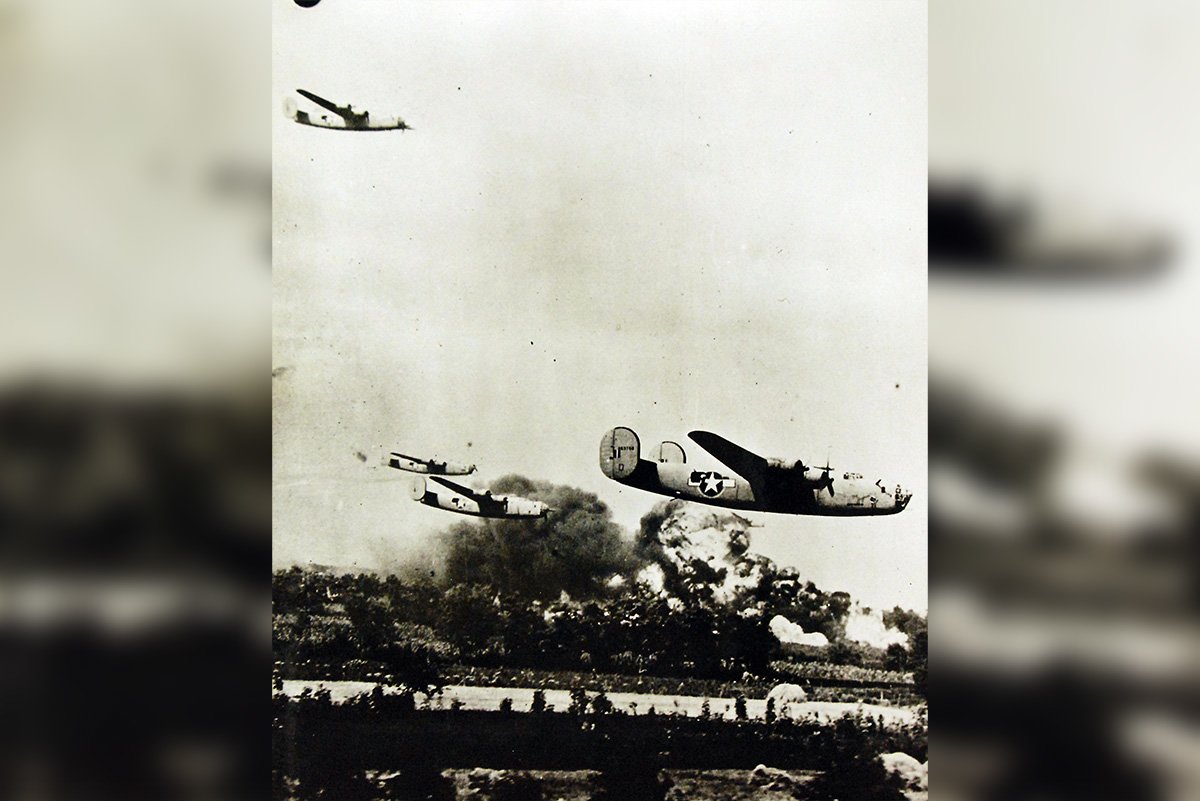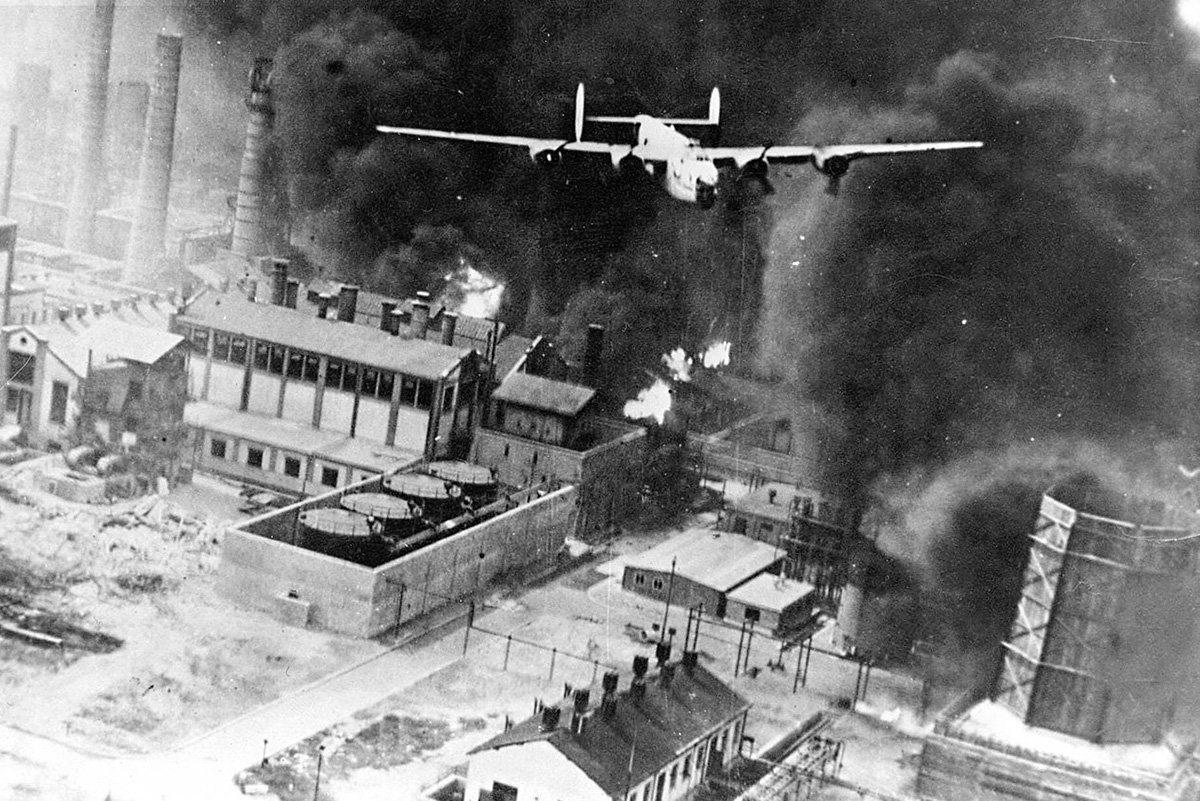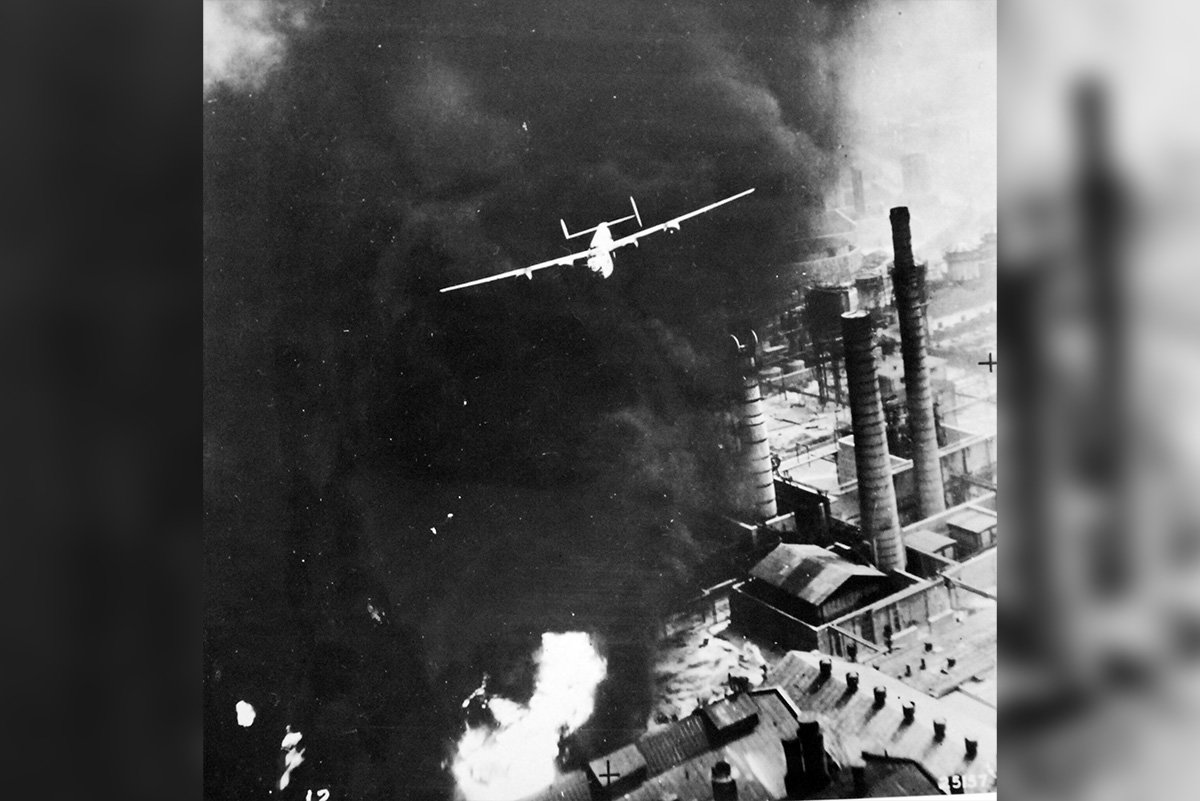World War II Medal of Honor Recipient’s Body Identified After 80 Years in Mass Grave

Medal of Honor recipient Lt. Col. Addison Earl Baker led his squadron to the target after the loss of the unit’s navigator on Aug. 1, 1943, even after his plane was hit by a high-caliber shell. Photo courtesy of the Congressional Medal of Honor Society.
For almost 80 years, the body of pilot Lt. Col. Addison Earl Baker lay in a mass grave in Romania; he’d been killed in a doomed air raid in an overlooked corner of World War II. In a bomber called Hell’s Wench, he led a flight of B-24 Liberators in 1943 and died when he refused to turn back despite grievous damage to the plane.
He was awarded the Medal of Honor for his heroism on the raid, but his remains were unidentified until April 8, 2022. A Pentagon spokesperson first announced that the Department of Defense POW/MIA Accounting Agency (DPAA) had identified Baker’s remains in a press briefing on April 14.

Baker was the commander of the 93rd Heavy Bombardment Group for Operation Tidal Wave, a bold but ultimately doomed mission to strike nine oil refineries in Ploești, Romania, about 35 miles north of the capital of Bucharest. Though not as well known as other battlefields of World War II , Romania and its oil factories supplied the Third Reich with around 60% of its crude oil, according to an article by Jason Dawsey, a research historian at the Institute for the Study of War and Democracy. “The failure of the Wehrmacht’s 1942 offensive to seize Soviet oil reserves in the Caucasus only enhanced the importance of Romanian oil,” he wrote.
As commander of the group, Baker led his bombers from Benghazi, Libya, on the morning of Aug. 1, 1943. In all, 178 B-24s, five squadrons from the 8th and 9th Air Forces, were sent on the mission. Flying under radio silence, the bombers planned to come in low, dropping their ordnance from 200-800 feet, rather than using the more conventional method of high-altitude drops.

The raiders expected to have the element of surprise, but the Germans were waiting for them. Germany broke the Americans’ codes and prepped the battlefield in advance with anti-aircraft cannons, smoke generators, and balloons holding deadly steel cables above the targets.
As the B-24 Liberators zeroed in on Ploești, chaos reigned. The loss of their navigator led to them almost missing the target entirely. Lt. Col. Addison Earl Baker realized some of the squadrons were heading too far toward Bucharest — leading some Germans to suspect the raid was planned that way — but turned his B-24 back on target, leading the rest of the initial assault force to the right location.
Then, a large-caliber shell hit his aluminum bomber.
“Ignoring the fact he was flying over terrain suitable for safe landing, he refused to jeopardize the mission by breaking up the lead formation and continued unswervingly to lead his group to the target upon which he dropped his bombs with devastating effect,” his official citation states. “Only then did he leave formation, but his valiant attempts to gain sufficient altitude for the crew to escape by parachute were unavailing and his aircraft crashed in flames after his successful efforts to avoid other planes in formation.”

The Ploești raid was incredibly costly, counting as one of the only air raids in WWII in which more airmen died than did those on the ground. In all, 310 airmen were killed, 130 airmen were wounded, and more than 100 were captured. The raid killed 116 Romanian military members and civilians, according to historian Donald L. Miller, author of Masters of the Air: America’s Bomber Boys Who Fought the Air War Against Nazi Germany.
Baker’s initially unidentified remains were buried as an “[unknown] in the Hero Section of the Civilian and Military Cemetery of Bolovan, Ploiești, Prahova, Romania,” according to the DPAA. The organization has been working to identify the remains of unknowns around the world, partnering with several nations as part of the effort to repatriate heroes of previous American wars.
Since 2018, the DPAA credits the Romanian Ministry of National Defense, the National History Museum of Romania, the “Princely Court” National Museums Complex – Târgovișta, and the Argeș Country Museum with assisting significantly in the efforts to identify the remains of American WWII heroes in Romania. Baker’s remains were identified at the DPAA facility at Offutt Air Force Base in Omaha, Nebraska.
Read Next:

Lauren Coontz is a former staff writer for Coffee or Die Magazine. Beaches are preferred, but Lauren calls the Rocky Mountains of Utah home. You can usually find her in an art museum, at an archaeology site, or checking out local nightlife like drag shows and cocktail bars (gin is key). A student of history, Lauren is an Army veteran who worked all over the world and loves to travel to see the old stuff the history books only give a sentence to. She likes medium roast coffee and sometimes, like a sinner, adds sweet cream to it.
BRCC and Bad Moon Print Press team up for an exclusive, limited-edition T-shirt design!
BRCC partners with Team Room Design for an exclusive T-shirt release!
Thirty Seconds Out has partnered with BRCC for an exclusive shirt design invoking the God of Winter.
Lucas O'Hara of Grizzly Forge has teamed up with BRCC for a badass, exclusive Shirt Club T-shirt design featuring his most popular knife and tiomahawk.
Coffee or Die sits down with one of the graphic designers behind Black Rifle Coffee's signature look and vibe.
Biden will award the Medal of Honor to a Vietnam War Army helicopter pilot who risked his life to save a reconnaissance team from almost certain death.
Ever wonder how much Jack Mandaville would f*ck sh*t up if he went back in time? The American Revolution didn't even see him coming.
A nearly 200-year-old West Point time capsule that at first appeared to yield little more than dust contains hidden treasure, the US Military Academy said.












